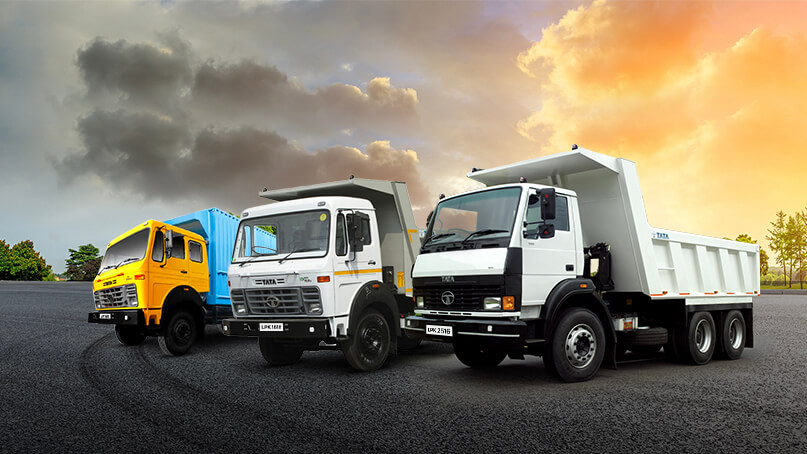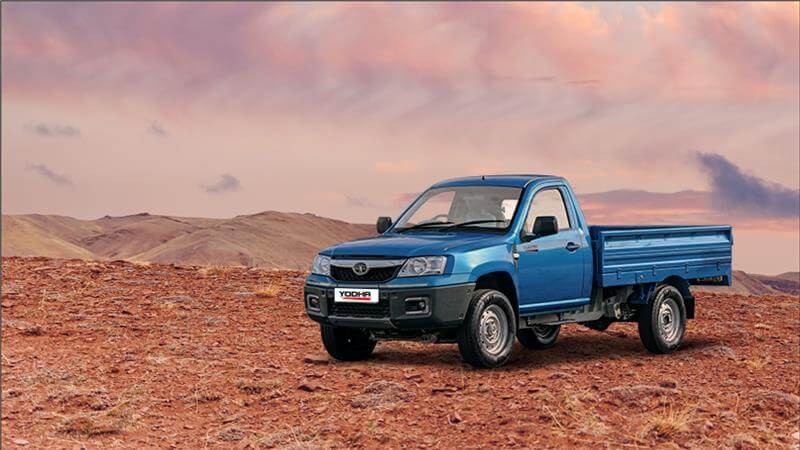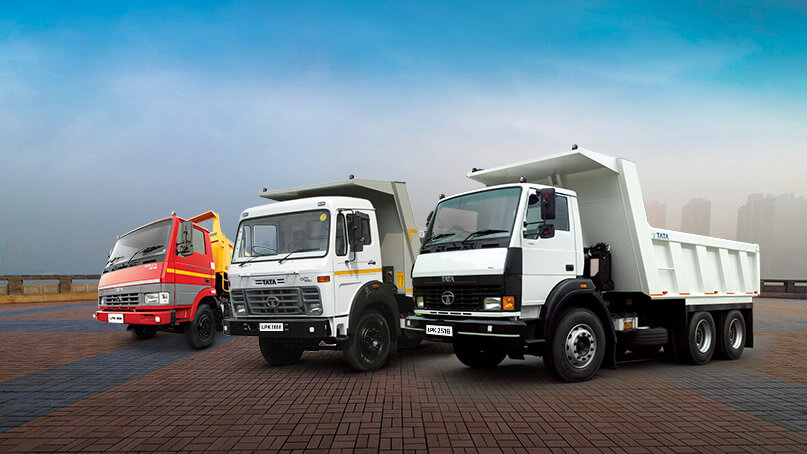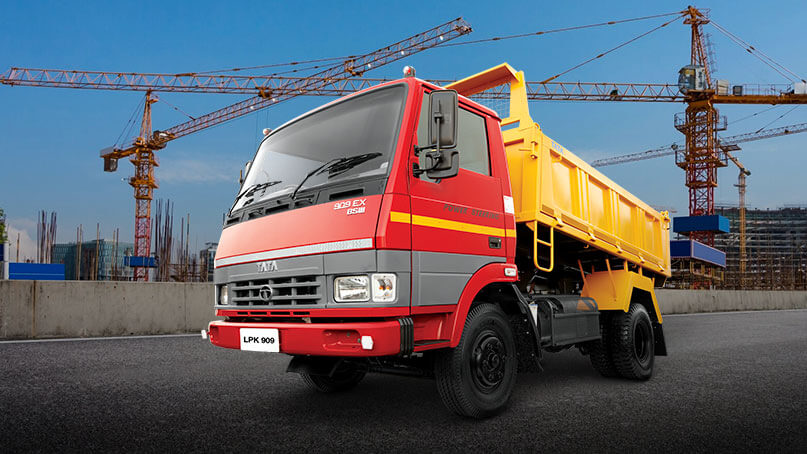15 Dec 2023

Bangladesh Trucks: The Backbone of the Supply Chain
- Tata Motors
- 6 Nov 2023
- Commercial Vechicle
Introduction
Imagine a world without trucks. It's a terrifying thought, isn't it? From the food on your table to the clothes on your back, nearly everything you use in your daily life has likely spent some time on the back of a truck.
The unsung heroes of the road in supply chain logistics are the big trucks that relentlessly traverse our highways, connecting the dots of commerce. Bangladesh, in the heart of South Asia, is a prime example of a country where trucks are essential to the movement of products. They are literally the backbone of this country's supply network.
The Power of Bangladesh’s Trucking Industry
Bangladesh's trucking industry plays a crucial role in ensuring efficient supply chain logistics in a densely populated country like Bangladesh. With over 160 million people living in an area roughly the size of Iowa, the demand for a well-connected transportation network is high. Currently, there are over 300,000 registered trucks in Bangladesh, and this number continues to grow. These trucks transport a wide range of goods, from agricultural products to manufactured goods, contributing significantly to the country's economy. According to the World Bank, road transport accounts for more than 75% of the total inland freight movement in Bangladesh.
Trucks play a crucial role in Bangladesh's supply chain
Economic Contribution: The road transport sector in Bangladesh makes a significant contribution to the nation's economy. As of my last knowledge update in September 2021, there were approximately 210,000 registered trucks in the country, and this number is expected to have increased. These trucks collectively transport goods worth billions of dollars each year, ensuring efficient delivery to consumers.
Connecting the Nation: Bangladesh's extensive network of roads and highways enables trucks to reach even the most remote areas of the country. This connectivity has improved access to essential goods, healthcare, and education for millions of Bangladeshis.
Employment Opportunities: The trucking industry provides employment to a large number of individuals, including truck drivers, mechanics, loaders, and logistics professionals. It serves as a lifeline for families across the nation, offering livelihoods to those who keep the wheels turning.
Current News: The Resilience of Bangladesh's Trucking Industry During the Pandemic
It is critical to showcase Bangladesh transportation industry resiliency throughout the COVID-19 outbreak. The business faced several hurdles, ranging from supply chain delays to driver health concerns. However, these difficulties only served to highlight the industry's critical position. Truckers braved the odds to guarantee crucial products arrived at their destinations, often at great personal risk, according to news accounts from 2020 and 2021. Their endurance and passion attest to the importance of the trucking business in Bangladesh.
Challenges and Innovations
In any industry, change is the only constant. The trucking sector in Bangladesh faces its fair share of challenges, but it's also experiencing remarkable innovations and adaptations to meet modern demands.
Traffic Congestion: Dhaka, the capital of Bangladesh, is notorious for its traffic congestion. The inefficiencies caused by traffic jams not only increase transportation costs but also delay the delivery of essential goods. To tackle this issue, there have been initiatives to implement a more efficient traffic management system.
Environmental Concerns: Like many other countries, Bangladesh is increasingly focused on environmental sustainability. As a result, there's a growing interest in transitioning to cleaner, more fuel-efficient trucks and adopting eco-friendly practices in the trucking industry.
Digital Transformation: The digital age has brought a wave of innovation to the logistics sector. Companies are using technology to track shipments, optimize routes, and improve overall efficiency. This digital transformation is streamlining operations and enhancing customer experiences.
Bangladesh Truckers: The Road Warriors
A trucker with a story is behind every screaming engine and towering stack of freight. The drivers of these huge machines are the unsung heroes of the road. They spend long hours driving highways and byways, exploring difficult terrain and unpredictable weather.
A Bangladeshi trucker's life is not for the faint of heart. They form a close-knit group, united by their common road-trip experiences. They eat, sleep, and live in their trucks for days, even weeks, away from home comforts. Even in the face of adversity, their passion for their art keeps the wheels of commerce turning.
Connectivity and Accessibility: In a bustling urban center like Dhaka and a remote rural village in the Chittagong Hill Tracts, trucks are the lifeline that connects these two worlds. They ensure that essential products from urban areas can reach even the most isolated corners of Bangladesh. Whether it's food, medicine, or consumer goods, trucks play a crucial role in making sure everyone has access to what they need.
Economic Growth and Trade: Bangladesh's economic growth has been remarkable, thanks in part to its thriving manufacturing and export sectors. Trucks are at the heart of this success story. They transport raw materials to factories and finished products to ports for export. Without efficient transportation, the country's export-oriented industries would suffer greatly.
Job Creation and Livelihoods: The trucking industry in Bangladesh provides a significant number of jobs. From truck drivers and mechanics to loaders and logistics professionals, many people rely on this industry for their livelihoods. The bustling trucking ecosystem creates employment opportunities for both skilled and unskilled workers, contributing to poverty reduction and economic stability.
Efficiency and Timely Delivery: In the world of logistics, time is money, and timely delivery is crucial. Trucks in Bangladesh are the backbone of supply chains, ensuring smooth operations. They offer flexibility in scheduling and the ability to reach destinations that may be inaccessible by other means. This efficiency leads to faster deliveries, reduced inventory costs, and increased customer satisfaction.
Conclusion
It's easy to miss the basic truck in a world where attention is typically cast on high-tech businesses and gleaming buildings. However, these road giants are the unsung heroes of the supply chain, silently ensuring that commodities arrive at their destination, businesses thrive, and communities survive. In Bangladesh, the trucking sector is more than just a mode of transportation; it is a lifeline that connects the country.
So, the next time you see a truck on the road, consider how important it is in our lives. It's more than simply a car; it's a symbol of perseverance, development, and the unbreakable links that unite us all. And one delivery at a time, these trucks are painting a brighter future in Bangladesh.
- Tags
Latest Blogs














